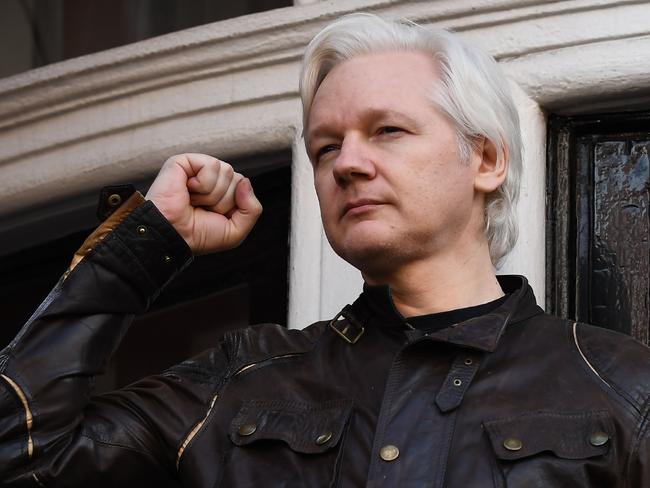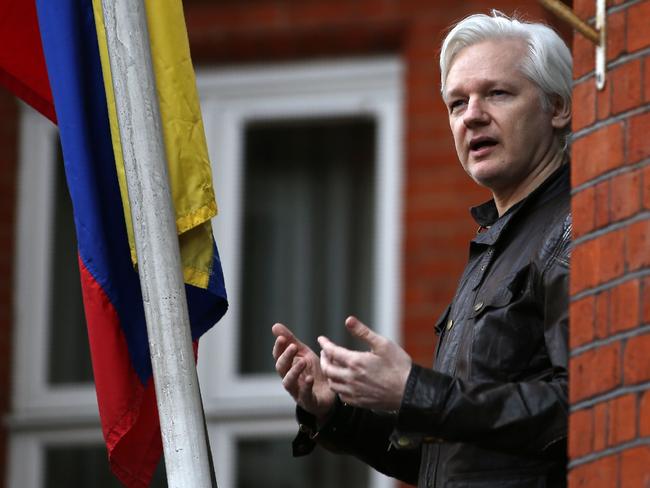Ecuador ‘close to evicting Julian Assange’
JULIAN Assange remains barricaded in the Ecuadorian embassy in London as speculation mounts he could lose his asylum protection and be forced out of the consulate at any time.
National
Don't miss out on the headlines from National. Followed categories will be added to My News.
JULIAN Assange remains barricaded in the Ecuadorian embassy in London as speculation mounts he could lose his asylum protection and be forced out of the consulate at any time.
Supporters of the Wikileaks founder have set up camp outside the embassy in Knightsbridge where Australian citizen Mr Assange has been holed up since 2012.
The whistleblower skipped bail in the UK and sought refuge at the embassy, fearing he would be prosecuted by the United States over the release of highly confidential government documents.
Attempts by News Corp to speak with Mr Assange at the embassy on Wednesday were unsuccessful.

The Australian citizen had his internet connection cut by the embassy in March because he allegedly breached a commitment “not to issue messages that might interfere with other states”.
Tasmanian barrister Greg Barnes, an advisor to Mr Assange, 47, told News Corp that speculation about the Wikileaks founder’s future at the embassy had grown ahead of a trip to London this week by Ecuadorian President Lenin Moreno, who was ostensibly there for a disability summit.
Last week British media reported that government ministers were in talks to remove Mr Assange from the embassy.
Mr Barnes believed it was likely the Ecuadorian and UK governments had discussed the matter.
“I think it is implausible to suggest that an Ecuadorian president could be in London and not discuss with the British government the issue around Julian Assange that has been going on for six years,” he said.

Mr Barnes said the Australian government had been “more receptive” to Mr Assange since former Attorney-General George Brandis’s appointment as High Commissioner to the UK in June.
“I was glad to see (Australian Foreign Minister) Julie Bishop didn’t jump on board with the comments made by (UK Foreign Secretary) Jeremy Hunt last week,” Mr Barnes said.
“Whether Mr Hunt seriously misspoke or let out more detail than we are aware of I don’t know.”
He was referring to a joint press conference with Ms Bishop where Mr Hunt said British police would have a “warm welcome” for Mr Assange if he left the embassy and that “serious charges have been laid against him”.
But Mr Barnes said Mr Assange’s only known legal matter was a British warrant for his failure to appear in a court relating to his extradition to Sweden in 2012 over a rape investigation, which was dropped last year.
Prosecutors dropped the matter as the time allowable for a charge to be laid was about to expire.
Mr Barnes said the US government needed to be open about whether there was a grand jury
indictment for Mr Assange and whether or not they would charge him with a crime.
A long-time acquaintance of Mr Assange, anti-war campaigner Ciaran O’Reilly, said he had been camped out the front of the embassy since Saturday but had not seen him.
Where he once used to frequently pop out onto the low balcony, he has rarely opened the curtains in recent months.


